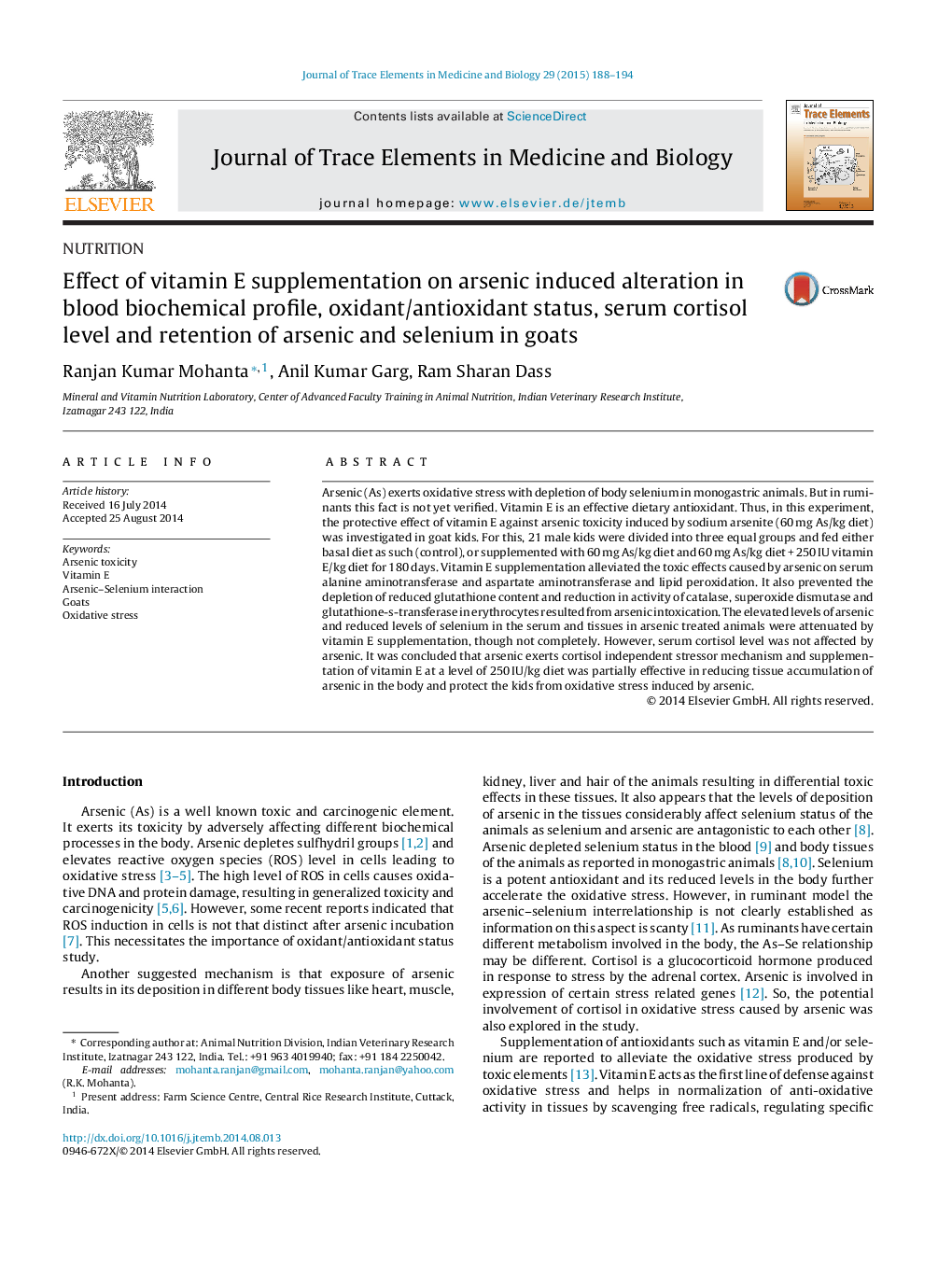| Article ID | Journal | Published Year | Pages | File Type |
|---|---|---|---|---|
| 1227360 | Journal of Trace Elements in Medicine and Biology | 2015 | 7 Pages |
Arsenic (As) exerts oxidative stress with depletion of body selenium in monogastric animals. But in ruminants this fact is not yet verified. Vitamin E is an effective dietary antioxidant. Thus, in this experiment, the protective effect of vitamin E against arsenic toxicity induced by sodium arsenite (60 mg As/kg diet) was investigated in goat kids. For this, 21 male kids were divided into three equal groups and fed either basal diet as such (control), or supplemented with 60 mg As/kg diet and 60 mg As/kg diet + 250 IU vitamin E/kg diet for 180 days. Vitamin E supplementation alleviated the toxic effects caused by arsenic on serum alanine aminotransferase and aspartate aminotransferase and lipid peroxidation. It also prevented the depletion of reduced glutathione content and reduction in activity of catalase, superoxide dismutase and glutathione-s-transferase in erythrocytes resulted from arsenic intoxication. The elevated levels of arsenic and reduced levels of selenium in the serum and tissues in arsenic treated animals were attenuated by vitamin E supplementation, though not completely. However, serum cortisol level was not affected by arsenic. It was concluded that arsenic exerts cortisol independent stressor mechanism and supplementation of vitamin E at a level of 250 IU/kg diet was partially effective in reducing tissue accumulation of arsenic in the body and protect the kids from oxidative stress induced by arsenic.
